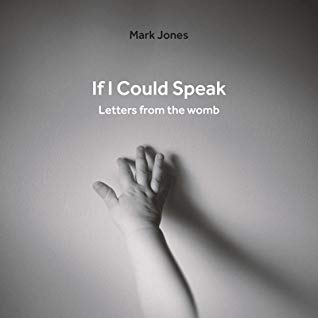67 pages, £9.99. ISBN: 978-1-5271-0466-2.

This is a most
atypical Christian book.
It is a hardback; it is dimensionally oversized;
it consists of just 67 pages; it is printed on
high-quality paper; its pages are half text and half
‘arty’ full-colour pictures and it costs only £9.99. This is almost
revolutionary – what’s the idea?
The idea is made
candidly clear in the Introduction. ‘This short
book takes a fictional scenario of a preborn child,
roughly twenty weeks old, who writes letters to her
mother. She
puts forth a case for why her mother should decide to
keep her and raise her instead of having an abortion.’ And, ‘While
this book is for everyone, it is specifically aimed to
give expecting mothers who are considering an abortion,
something to think about before they decide to make a
choice to end another person’s life.’ In other
words, it’s a pro-life infomercial. Yes, but it is
also so much more.
The book is
produced primarily for the North American market – there
are the middle-class aspirations of college education,
US spellings, turns of phrase and Harvard commas. That’s OK,
after all, the author is the pastor of Faith Reformed
Presbyterian Church (PCA) in Vancouver, Canada.
The content and style
In all there are
fifteen letters – thirteen to Dear Mommy, one to Dear
Daddy and one from Mommy.
While the ‘talking letter’ is not an unknown
literary genre, it is sufficiently novel in this context
to work well. It
is certainly thought provoking – job done!
Of course, the
reality of letters from an erudite 20-week-old unborn
Zoe is far-fetched, but they do sustain an air of
plausibility, mostly.
After all, from earliest days, there are
biochemical and neural communications between a mother
and her unborn child.
At times, Zoe writes sweetly and persuasively,
pleading for her life.
She also writes theologically about the ‘message
of love and forgiveness that comes from trusting Jesus.’ And she writes
knowledgeably telling how the abortionist uses laminaria
and a sopher clamp.
Now and again, the flow of the story is disrupted
by a raw statement, such as, ‘Moral relativism is a
dangerous option.’
Womb-bound Zoe, you are way ahead of your
grown-up readers!
The style is
bright and informative and creative. It is didactic
and polemic and humorous and apologetic – it is really a
big, pro-life Christian tract. The watchful
reader will be waiting for the first appearance of the
two key words, namely, abortion and God. They come
eventually on p. 31 and p. 41 respectively. There are
other pivotal moments.
The book regularly flips from the light hearted
to the deadly serious, sometimes with sprinkles of
psychobabble and even a dash of syrup. Now and again
I got lost. Try
this from p. 15, ‘One of the wonderful things about
being a human is our ability to make rational free
decisions, especially those decisions for the good of
others.’ The
reader is then encouraged to think of Hitler and Denis
Mukwege. What?
And there are
quotations from a stream of others, like Hosea Ballou,
Ann B Ross, Jim Croce, Edward-Edik Tonkonogi, Helga
Weiss, Ben Folds and Flipsyde (no, me neither). Thankfully,
Mark Twain, Eminem and Sinead O’Connor are referenced,
plus plain old Alexis and Nick, aka Mommy and Daddy and
obviously the letter writer, young Zoe.
Oh dear, now comes
the spoiler alert.
There is no happy ending. Zoe’s final
and most poignant letter is short, ‘Dear Mommy, I love
you. For me
the beginning has turned out to be the end. I love you; I
wished you loved me too.
Zoe.’ Mom
pens the last letter of the book, which is to Zoe. It is written
ten years after her abortion of Zoe. How mother
misses daughter! Will
they ever meet? Perhaps. It closes,
‘That is my hope – a hope based on the gracious nature
of God who gave His Son a ransom for many, including
Nick and me. Love,
Mommy.’
The conclusion
Abortion is a
wretched reality, everyday and everywhere. How do we
shift people’s thinking from being carelessly pro-choice
to rationally pro-life?
We come by different routes. Some come
through biological truth, or discussion, or philosophy,
or talks, or theology, or pictures, or books like this
one. This
book will prod your brain, whether you are pregnant or
not, as it poses some tough and inconvenient questions. It will also
tug at your heart.
It was always Mark
Jones’ purpose to ‘… give you, the reader, much to think
about.’ And
he certainly does that with this innovative project. The bottom
line of every pro-life endeavour must always be, how
many unborn children did it save? This book
should make that difference. It should also
make many glad. May
it be so.